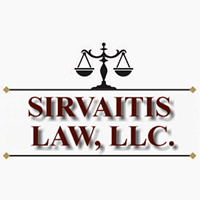Lake County, OH Reorganization Lawyers
Sponsored Law Firm
-
 x
x

Click For More Info:
-
R. Lasko Co. LPA, LLC
1406 W 6th St STE 200, Cleveland, OH 44113» view mapBusiness, Estate, Real Estate, Employment Competent Legal Representation
Let R. Lasko Co. LPA, LLC handle all your legal needs today!
216-574-2602
Not enough matches for Lake Reorganization lawyer.
Below are all Lake lawyers.
Glenn E. Forbes
✓ VERIFIEDBankruptcy & Debt, Divorce & Family Law, Estate, Landlord-Tenant, Business
Glenn E. Forbes has been practicing Bankruptcy law for forty (40) years. After his admission to the Ohio bar, he immediately began practicing Bankrup... (more)
Algis Sirvaitis
✓ VERIFIEDEstate, Wills & Probate, Real Estate, Elder Law
Algis Sirvaitis brings a wealth of experience in the law, having practiced in the Cleveland area since 1966. He is well versed in many areas of the la... (more)
Gary D. Zeid
Real Estate, Wills & Probate, Child Custody, Divorce & Family Law, Car Accident
Status: In Good Standing
Robert J. DiCello
Estate Administration, Wrongful Death, Medical Malpractice, Car Accident, Products Liability
Status: In Good Standing
FREE CONSULTATION
CONTACTFREE CONSULTATION
CONTACTFREE CONSULTATION
CONTACTFREE CONSULTATION
CONTACTMark A. DiCello
Litigation, Trucking, Household Mold, Personal Injury, Mass Torts
Status: In Good Standing
FREE CONSULTATION
CONTACT Ronald Lasko Cleveland, OH
Ronald Lasko Cleveland, OH AboutR. Lasko Co. LPA, LLC
AboutR. Lasko Co. LPA, LLC


